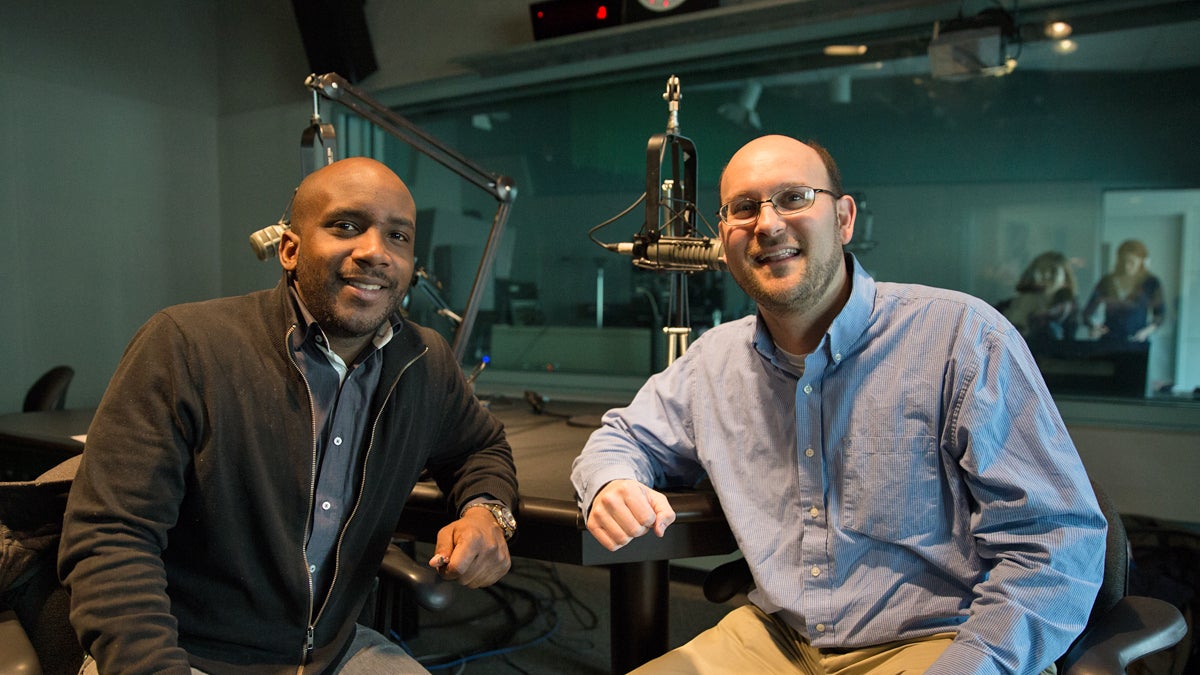In order to know birds, we must first acquaint ourselves with lice
Listen
Writer Christopher Norwood sat down with Ornithologist Jason Weckstein for this edition of "So
Birds are beautiful, with their colorful feathers, graceful flight and sweet songs. But what about the parasites that live on and inside of them?
Birds are beautiful, with their colorful feathers, graceful flight and sweet songs. Most people would agree on that.
Ornithologist Jason Weckstein loves birds – but he also likes to ruffle some feathers to learn more about the parasites that live on and inside of birds. Weckstein is Associate Curator of Ornithology at the Academy of Natural Sciences of Drexel University. He sat down with writer Christopher Norwood for this edition of “So, What Do You Do?”
“I’m an avian evolutionary biologist, and a parisotologist, so I wear a couple of hats,” said Weckstein. “The primary parasite I work on is lice, chewing lice that live on birds – they are much like the lice that affect humans,” he added.
Weckstein says his fascination with parasites is in part fueled by sheer numbers. “The statistic I like to throw out there is 30 to 70 percent of life on earth is parasitic. Birds have a whole suite of parasites living on and in them, and it’s hard to even know, are they having a negative impact, or is it a mutualistic relationship?”
Weckstein’s research so far has found that the chewing lice he’s studied do have a detrimental effect on their bird hosts – who won’t have as many young, or can’t survive winter as well, because the lice chew on their downy feathers.
“Are birds just filthy?” asked Norwood. “There is this perception out there that if you see a dead bird you shouldn’t touch it, that birds are dirty.”
Weckstein answered that he handles birds all the time, and isn’t overly concerned with them being dirty. “Are they filthy with parasites? Yes,” he said. “Will those parasites cause a problem for us? No.”
Weckstein explained that some parasites and other organisms can switch hosts, like in the example of avian influenza, but bird lice are not able to travel to other species.
“These lice are so specific to feathers, basically if one of those crawls on you, it will fall off, it can’t hang on to human skin and hair.”
“What do you hope to get out of your research?” asked Norwood.
Weckstein says his big picture goal is to help gain a better understanding of biodiversity on our planet.
More specifically, he’s interested in understanding patterns in evolutionary history, and what makes some parasites better able to move between hosts.
“Some ride on little flies and can better disperse between hosts, others can’t attach themselves to these flies. So understanding how host switching happens – how do parasites go from being specific to one thing to moving to another, or being generalists.”
WHYY is your source for fact-based, in-depth journalism and information. As a nonprofit organization, we rely on financial support from readers like you. Please give today.




